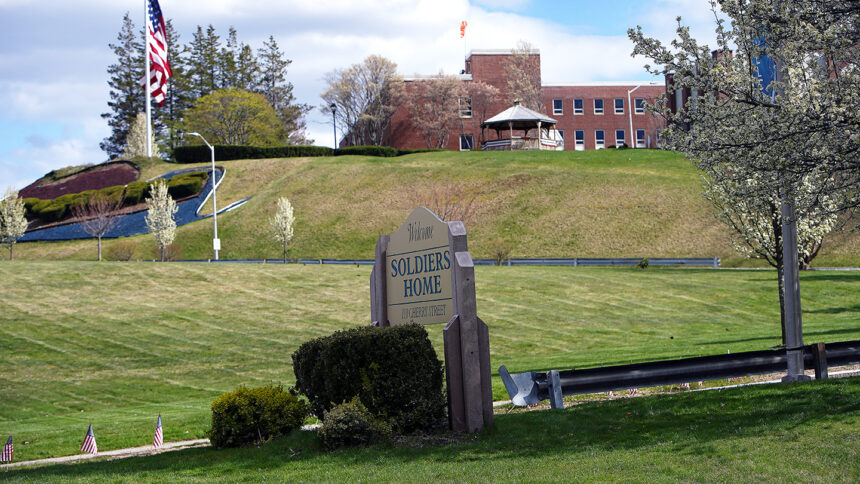
Two former leaders of a state-run nursing home where 76 veterans died in a single COVID outbreak must face criminal charges, despite a previous ruling that they could not be held liable for elder neglect.
The ruling by Massachusetts’ top court Thursday reinstates charges against Soldiers’ Home’s former superintendent Bennett Walsh and former medical director David Clinton, MD. The two had been indicted by a grand jury for their alleged mishandling of a massive outbreak at the Holyoke facility, in what were believed to be the first criminal charges related to COVID care.
The case will now return to Hampden Superior Court, where Walsh and Clinton will face five counts each of being a caretaker who wantonly or recklessly commits or permits abuse, neglect, or mistreatment to an elder or disabled person.
A Superior Court judge in 2021 tossed the indictments without holding a single evidentiary hearing. The defendants had argued they couldn’t be charged with the elder care crimes because those were intended for front-line workers, not managers.
The MassSupreme Judicial Court, however, disagreed in a precedent-setting opinion.
“As it pertains to the defendants, a ‘caretaker’ under the statute is an individual who contractually is duty-bound, answerable, or accountable for the health, well-being, and safety of an elder or person with a disability such that a reasonable person would believe that the individual’s failure in this regard would adversely affect the physical health of the elder or person with a disability,” found Associate Justice Dalila Argaez Wendlandt, writing for the court’s majority. “Nothing in the plain language limits the term to frontline workers ‘directly’ responsible for the care of an elder or person with a disability.”
Two justices penned a dissenting opinion in this case, which the majority cited as a possible “roadmap for the defendants” to use in their defense.
“At its core, this prosecution is nothing more than an exercise in assigning blame with the benefit of hindsight,” it reads. “A finding of probable cause that the defendants acted wantonly or recklessly in this case ignores the chaos, uncertainty, and unknowns present during the earliest days of the pandemic. Such a finding also fails to recognize the untenable staffing challenges the Soldiers’ Home in Holyoke (Soldiers’ Home) faced during this time.”
An attorney for Clinton on Thursday embraced that perspective.
“The dissent eloquently explains why this prosecution is misguided, and why Dr. Clinton is not guilty. We look forward to clearing his name at trial,” Jeffrey Pyle of Boston-based Prince Lobel Tye LLP told McKnight’s Long-Term Care News in a statement.
Attorneys for Walsh had not responded to phone and email requests for comment by deadline.
Commingling infected patients
Much of the judges’ ruling Thursday hinged on a mid-outbreak decision to combine two floors of Holyoke patients, including some who had not been exposed to COVID. Nine residents roomed in a dining area with no barriers between them.
The court found that the nursing home leaders, acting as caretakers, authorized the consolidation rather than use available opportunities to move sick patients, creating additional potential for resident harm.
An outside expert and Soldiers’ Home staff also testified that consolidation violated known infection control practices and increased residents’ risk of contracting COVID. One certified nursing assistant said she was “shocked” at the decision because it would result in veterans “on top of each other . . . shoulder to shoulder.” The state of the floor after consolidation “was the complete opposite of everything [she] learned” in nursing school.
That testimony and a review of previous rulings led the high court to find the defendants’ choice to cohort the residents and ignore offers of outside help was “intentional conduct of omission that involved a high degree of likelihood that substantial harm would result.”
Former Massachusetts Attorney General Maura Healey who first brought the charges against Walsh and Clinton, and she appealed the initial decision to drop those charges. Healey (D) is now governor. Current Attorney General Andrea Joy Campbell called Thursday’s decision “welcome and important news.”
“It affirms what we already knew: The leaders and managers of facilities like the Soldiers’ Home share responsibility for the health and safety of their residents,” she said in a statement. “Today’s decision allows us to focus once again on securing accountability for the tragic and preventable deaths at the Soldiers’ Home in Holyoke.”
The state has already paid a $58 million settlement to Holyoke residents and families after a class-action lawsuit. A second class-action case brought by employees in March seeks damages from Walsh, Clinton and two other former staff members.




